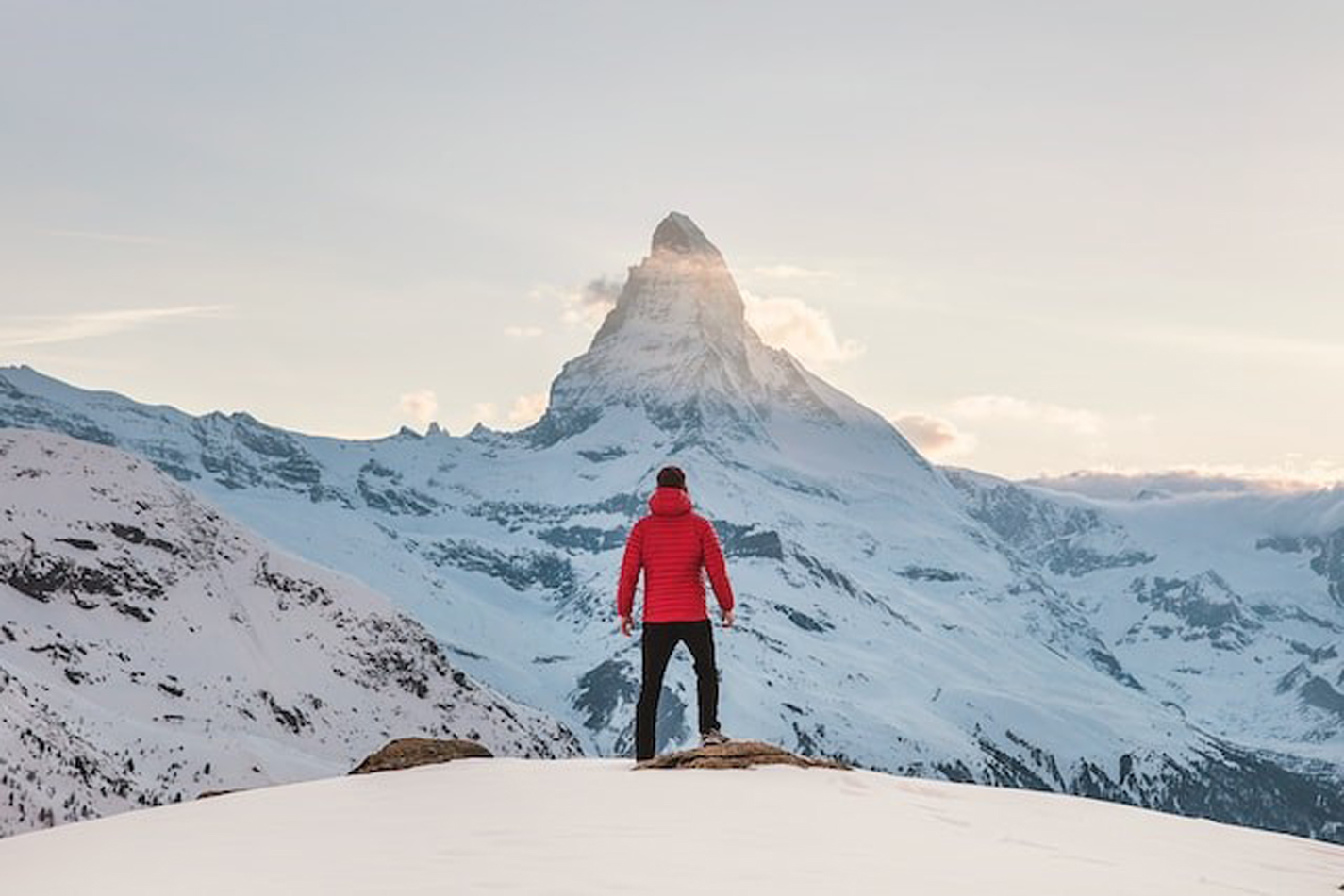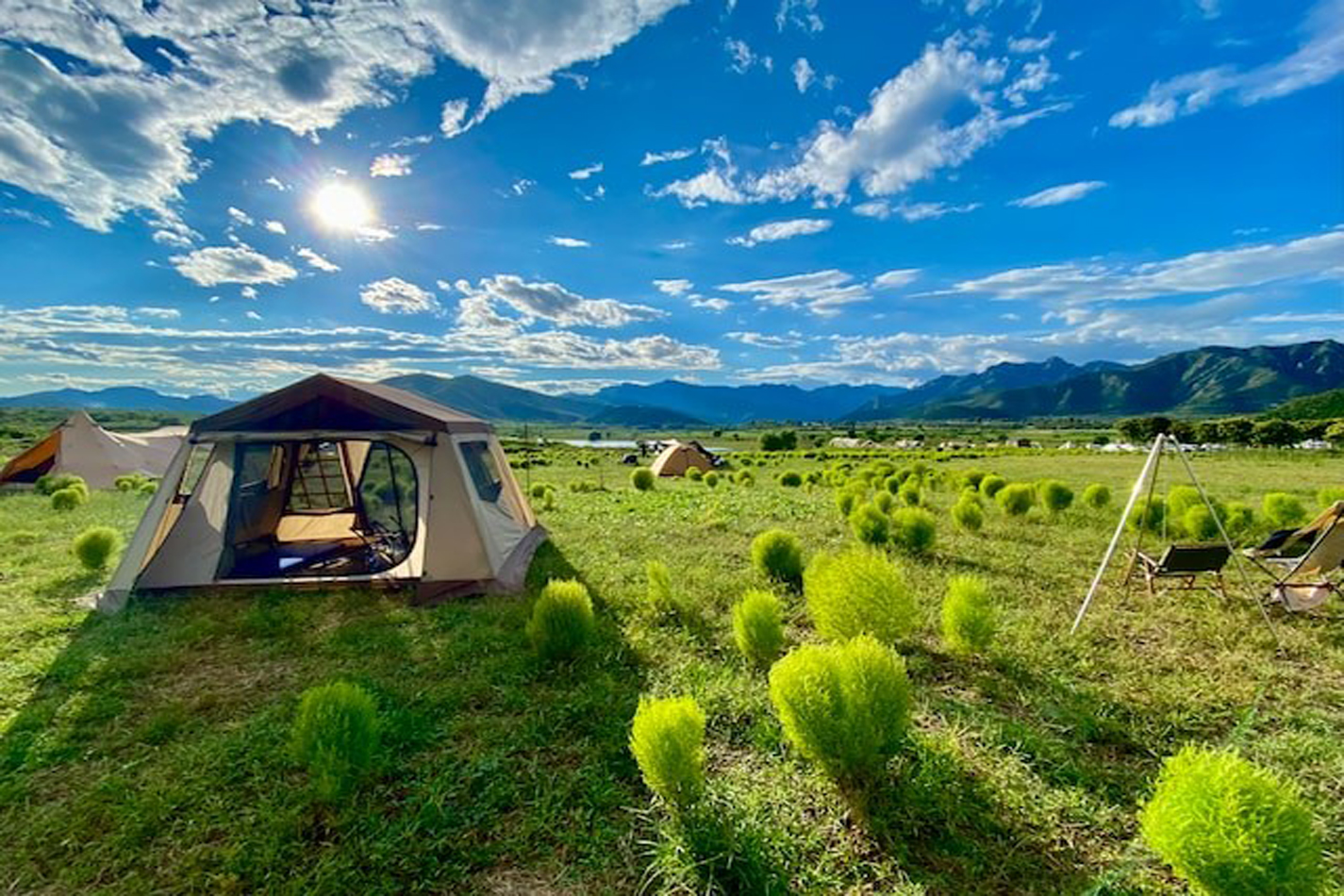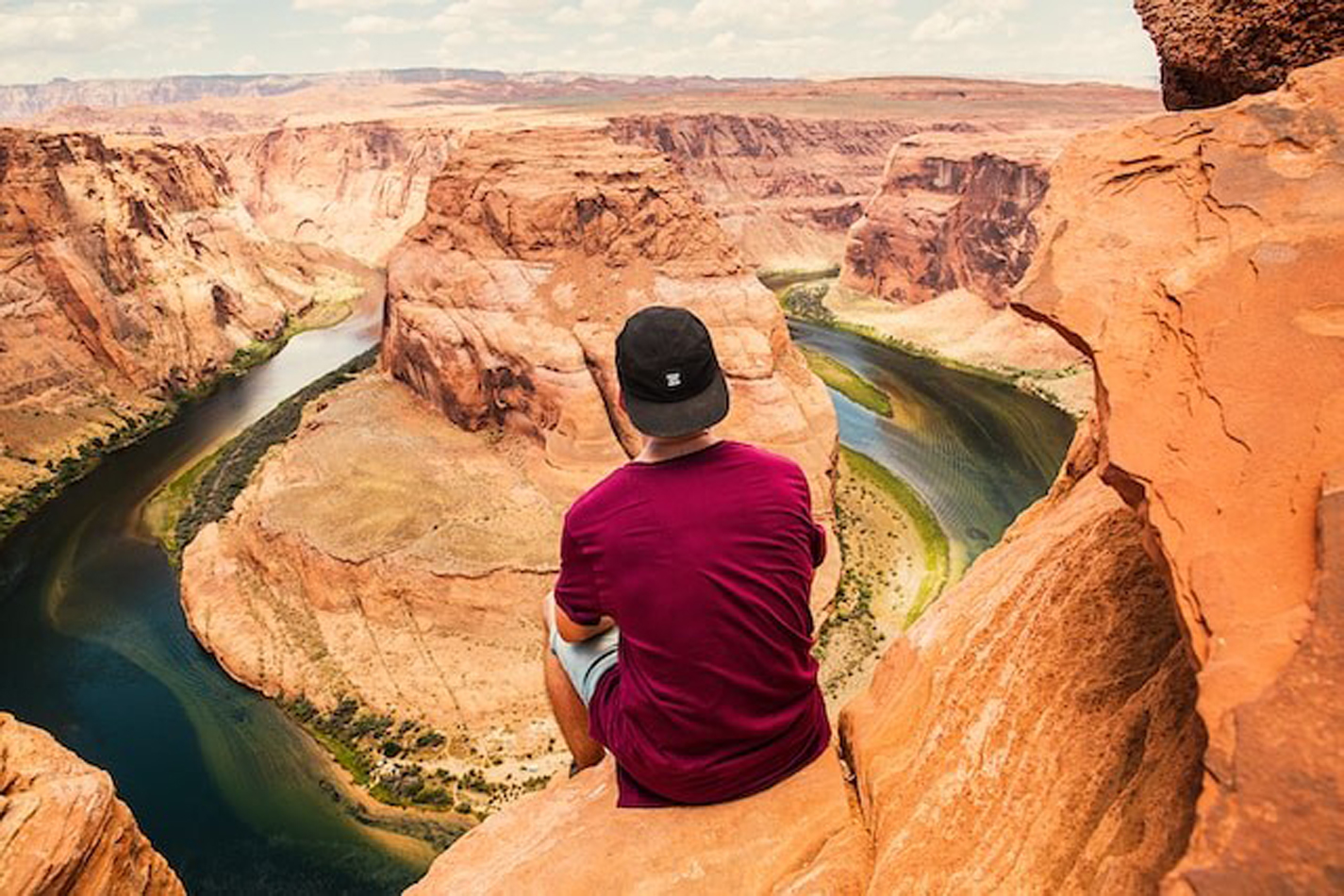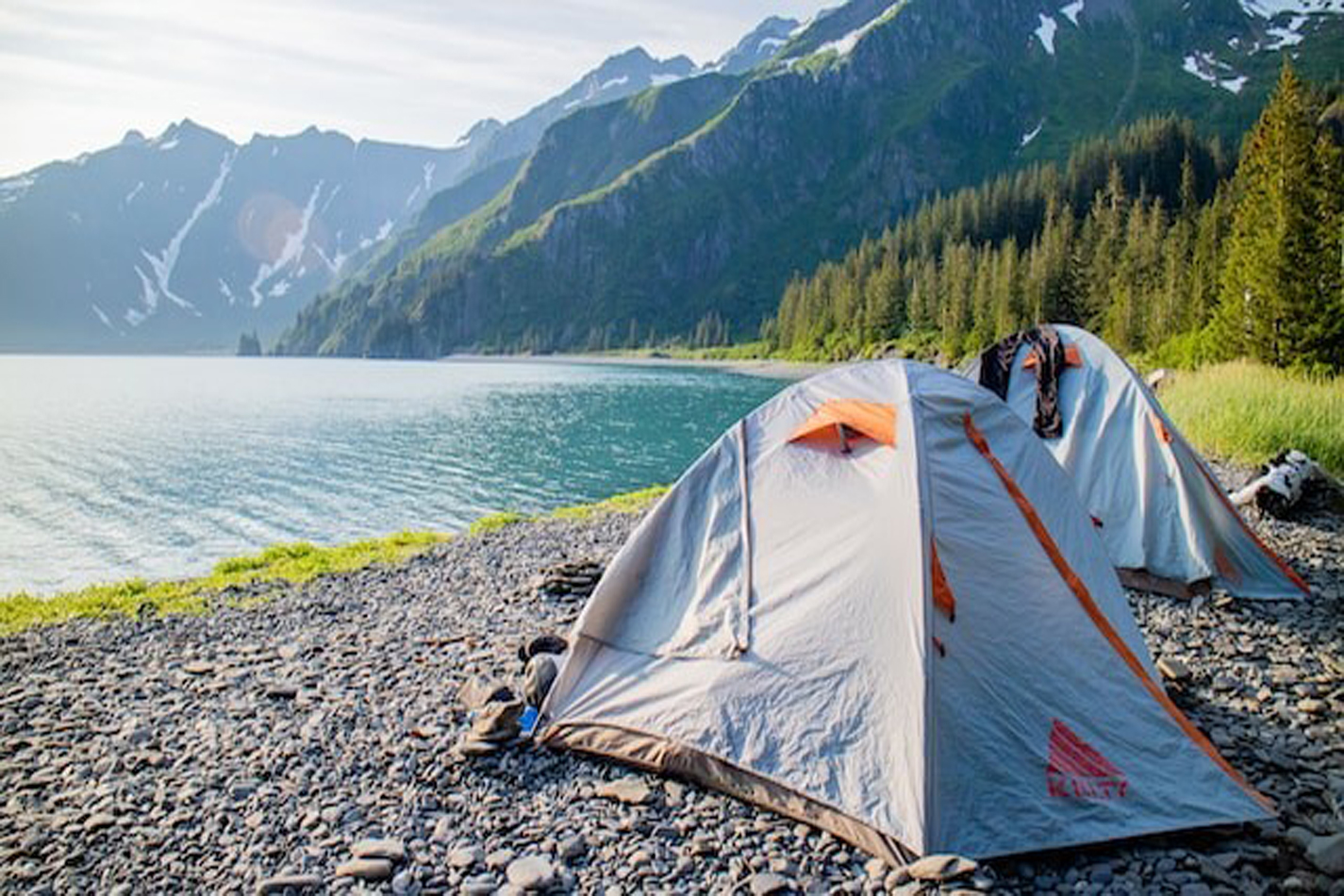12 Essentials Solo Camping Tips for a Successful Outing
Solo camping can be a thrilling adventure, offering a unique opportunity to connect with nature and oneself. However, for beginners, it's essential to approach this experience with careful planning and consideration. In this guide, we'll explore twelve most important solo camping tips that are crucial for a successful and enjoyable solo outing.

Tip # 1. Choose the Right Location
Selecting the right camping location is paramount for a successful solo camping trip. As a beginner, it's advisable to start with well-established campgrounds or designated camping areas.
Well-established campgrounds often come equipped with essential amenities, such as restroom facilities and potable water sources. This ensures that basic comfort needs are met, making the solo camping experience more convenient and less challenging for beginners.
For beginners, having park rangers nearby can really boost your confidence and ease safety worries. It adds a sense of security, making solo camping seem way less intimidating.
Likewise, well-established campgrounds typically have clear trails, marked sites, and infrastructure like fire rings and picnic areas. Beginners can navigate the area more comfortably, set up camp with greater ease, and focus on enjoying the outdoor experience rather than grappling with challenging terrain.
Tip # 2. Prioritize Safety Precautions
When you're out there solo camping, safety should be your number one concern. Before you hit the trail, give a heads-up to a buddy or family member. Let them know where you're planning to go and when you'll be back. It's like having a safety net.
Make sure you've got a reliable way to stay in touch, whether it's a phone or a radio. Pack a solid first aid kit, and it wouldn't hurt to take a basic first aid course. You never know when those skills might come in handy.
When embarking on a solo camping adventure, certain essentials can make a significant difference in your overall experience. A robust LED flashlight or penlight, boasting a minimum of 350 lumens and powered by reliable 14500 batteries with at least 2000mAh capacity, ensures you have a powerful and long-lasting light source for navigating the wilderness after dark.
A sturdy knife, a compact raincoat that can be easily folded into the palm of your hand provides effective protection against unexpected rain showers.
Additionally, your boots are waterproof or treating them with silicone spray ensures dry and comfortable feet, a critical factor for your well-being during solo camping excursions.
Remember, when it comes to solo camping, a little safety prep goes a long way. Your adventure should be memorable for all the right reasons!
Tip # 3. Checking weather conditions
Monitoring weather forecasts is a crucial practice for solo campers. Keeping an eye on forecasts helps solo campers anticipate and prepare for changes, reducing the risk of exposure to extreme weather events.
By staying informed, one can make proactive decisions to ensure safety, such as adjusting travel plans or fortifying campsite against adverse weather.
You can adjust your itinerary or activities based on the weather forecast. If you are aware of the weather conditions, you can easily conserve resources more effectively, such as water and fuel, based on anticipated conditions.
Tip # 4. Test Your Gear
Before you venture out on your solo camping escapade, get cozy with your gear. Take some time to set up your tent and play around with the important stuff. Make sure everything's in good shape with no glitches. This way, when you're at the campsite, things will run like a well-oiled machine.
One often overlooked aspect when testing your gear is considering different weather conditions. Try setting up your tent and handling equipment in various scenarios – a sunny day, a windy afternoon, or even a simulated rain shower. This not only ensures you're familiar with your gear but also prepares you for unexpected weather changes during your solo camping adventure.
Tip # 8. Master Fire Building Skills
Being a solo camper, you are on your own, almost no one around to help you out. Do grab a fire starting kit equipped to withstand wet conditions is essential, as standard matches and lighters may not suffice.
Firing up a good blaze isn't just about staying warm and whipping up some grub; it adds a nice, cozy vibe to solo camping. Get the lowdown on building a fire safely – pick the right spot for your fire pit and use the materials that won't send sparks flying.
Pick a designated area for your fire, preferably in an existing fire pit. Clear the area, build a ring of rocks, gather the raw materials like dry leaves, small twigs and branches for kindling. Be aware of wind direction and build your fire with that in mind.
And here's a golden rule: always make sure that fire is totally out before you hit the hay or bid your campsite farewell. Safety first, marshmallows second!
Tip # 6. Pack Light and Smart
When you're flying solo in the great outdoors, packing is your secret weapon. Make a handy checklist of must-haves and go for gear that's not bulky or heavy. Think lightweight and compact – it's the key to camping bliss.
Grab dehydrated meals and snacks. Why? 'Cause they're like magic – super light and easy to carry. That way, you're not lugging around a ton of weight. Packing smart means you get to roam free without dragging unnecessary baggage. It's all about that camping freedom!
Tip # 7. Develop Basic Outdoor Skills
When you're rolling solo in the wild, knowing some basic outdoor tricks is your superhero cape. Get cozy with a map, figure out a compass, whip up a makeshift shelter, purify water like a boss, tie knots that hold tight, and get the lowdown on the local wildlife.
Why? 'Cause these skills are your secret sauce for self-reliance and staying safe. They turn you into a camping ninja, ready for anything Mother Nature throws your way. So, gear up with these skills, and your solo camping game just leveled up!
Tip # 8. Embrace Minimalism and Disconnect
Solo camping provides an excellent opportunity to disconnect from the hustle and bustle of modern life. When you're out there solo camping, it's your chance to ditch the noise of everyday life. Forget about dragging along all those gadgets. Embrace the chill vibes of a minimalist lifestyle. Leave the electronics at home and dive into the wild.
Take time for old-school stuff – jot down your thoughts, doodle in a sketchbook, or just soak up the calm of nature. It's your solo escape, so make it about unplugging and finding the peace you've been craving. Say goodbye to the digital chaos and hello to the simple joy of the great outdoors!
Tip # 9. Time Management
When you're rolling solo in the wild, being the boss of your time is key. Plan your day smart – figure out what you want to do, when to whip up some grub, and when to kick back. The goal? Squeeze every drop out of those daylight hours.
Get to your campsite with some daylight to spare. That way, you're not fumbling in the dark to set up your spot. Efficient time management means more fun and less stress. So, rock that solo camping adventure by owning your schedule and soaking in every awesome moment!
Tip # 10. Wildlife Awareness
When you're camping, especially where the bears roam, keep your food on lockdown. Don't invite them to dinner! Whether it's tossing it in your car or using a bear-resistant container, make sure your grub is secure.
Consider a cool food bag hanging system – it's like your food's own little treehouse. Some spots might even hook you up with bear lockers. Why all the fuss? Well, it's not just about you. We're talking wildlife safety too. We don't want them getting hooked on human snacks – that's a recipe for trouble. So, keep it smart, keep it safe, for everyone's sake!
Tip # 11. Stay Mindful and Positive
Solo camping is like a date with nature – just you and the great outdoors. Soak it all in! Take a sec to appreciate the beauty around you. Be mindful – that means really being there, not lost in your thoughts.
Try some mindfulness exercises, whatever floats your boat – maybe just breathe in that fresh air. Solo camping is your ticket to dig deep into your thoughts, discover more about yourself, and ride that positive wave. It's your own little journey of self-discovery in nature's playground. Enjoy the ride!
Tip # 12. Leave No Trace
Practicing Leave No Trace principles is fundamental to preserving the natural beauty of the wilderness. Carry all trash with you, use designated campsites, and avoid disturbing wildlife. By adhering to these principles, you contribute to the sustainability of the wilderness for future generations.
Conclusion
Embarking on a solo camping journey is not just about surviving the wild; it's about thriving in nature's embrace. From choosing the right location and prioritizing safety to mastering fire-building skills and packing smart, these tips pave the way for an unforgettable experience.
Solo camping isn't merely a physical journey; it's a mental and emotional odyssey. Disconnect from the chaos of modern life, embrace minimalism, and dive into self-discovery. Learn essential outdoor skills, manage your time efficiently, and stay mindful of the beauty around you.
Frequently Asked Questions (FAQs)
1. Is solo camping safe for beginners?
Absolutely! Starting at well-established campgrounds with amenities ensures a comfortable and secure experience. Always prioritize safety precautions and consider having park rangers nearby for added confidence.
2. How can I make solo camping more enjoyable?
Mastering basic outdoor skills, like map reading and knot tying, enhances self-reliance. Embrace minimalism, disconnect from electronics, and prioritize mindfulness for a more enjoyable and fulfilling solo camping adventure.
3. What should I consider when choosing a solo camping location?
For beginners, opt for well-established campgrounds with clear trails and marked sites. These areas often provide essential amenities, making the experience convenient. Familiarity breeds comfort, so choose a location that boosts your confidence.
4. How can I ensure wildlife safety during solo camping?
Keep your food secure, especially in bear country, using containers or bear-resistant storage. Avoid attracting wildlife to your campsite, ensuring both your safety and the well-being of the animals. Consider using a food bag hanging system for added protection.
5. What are the essential skills for solo camping?
Develop basic outdoor skills, including map reading, compass use, shelter setup, water purification, and knot tying. These skills enhance self-reliance, ensuring you're well-prepared for various situations during your solo camping adventure.
6. How can I optimize time management during solo camping?
Efficient time management is crucial. Plan your day to maximize daylight hours, arrive at the campsite with spare daylight for setup, and avoid unnecessary stress. Being the boss of your time ensures a more enjoyable solo camping experience.
7. Why is disconnecting and embracing minimalism important during solo camping?
Solo camping provides an excellent opportunity to disconnect from modern life. Embrace minimalism by leaving unnecessary electronic devices behind, allowing you to focus on the serenity of nature and enjoy a more tranquil camping experience.
8. What gear is essential for a solo camping trip?
Pack light and smart by creating a checklist of lightweight and compact gear. Opt for dehydrated meals and snacks to minimize weight, providing you with the freedom to move without unnecessary burdens during your solo camping adventure.
9. How can I ensure a safe and cozy fire during solo camping?
Master fire-building skills by choosing the right spot for your fire pit, using suitable materials, and being mindful of wind direction. Always ensure the fire is completely out before leaving the campsite or going to sleep for a safe and enjoyable camping experience.
10. What is the importance of Leave No Trace principles in solo camping?
Practicing Leave No Trace is crucial for preserving the wilderness. Carry all trash with you, use designated campsites, and avoid disturbing wildlife. Adhering to these principles contributes to the sustainability of the wilderness for future solo campers.



